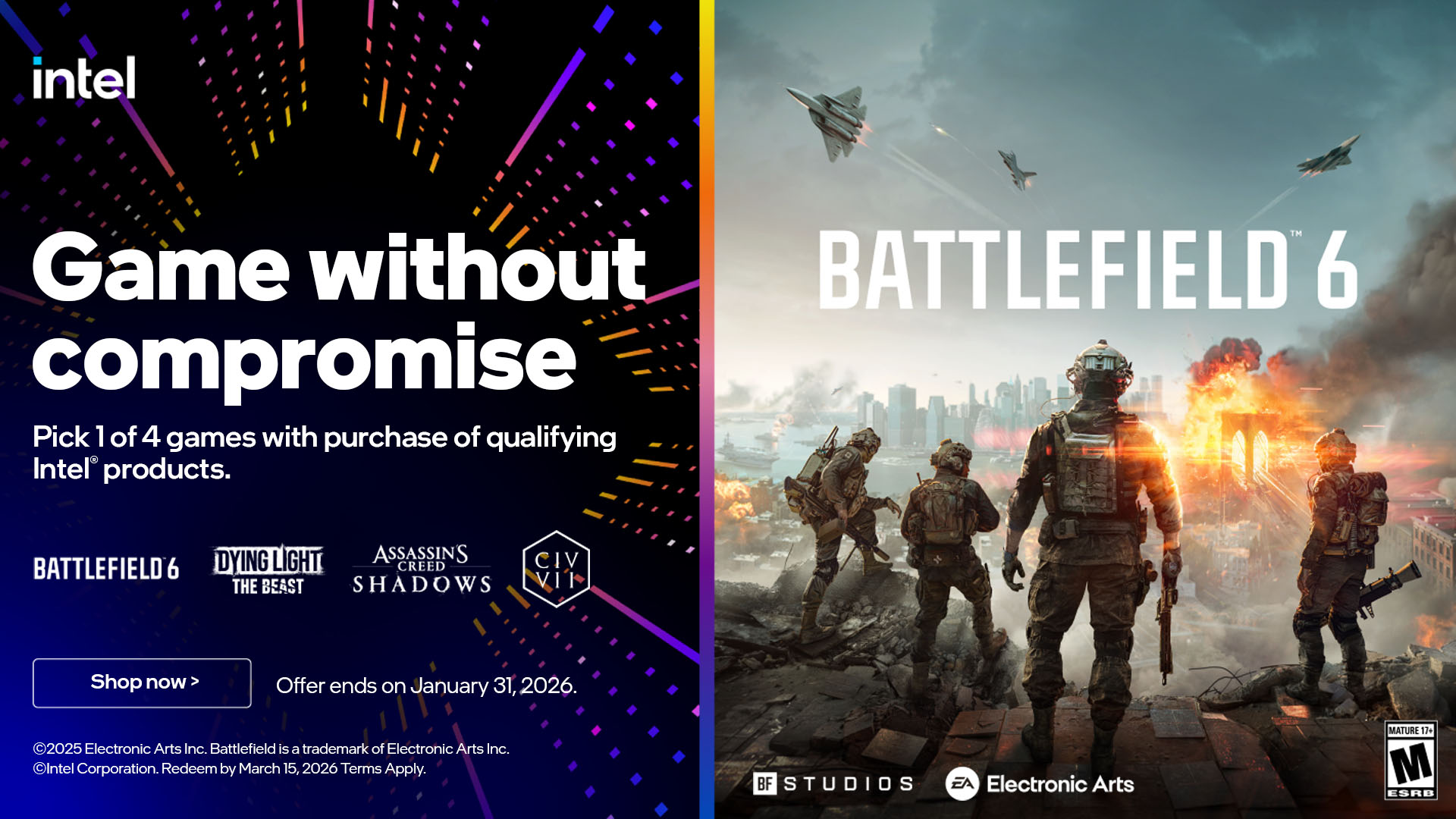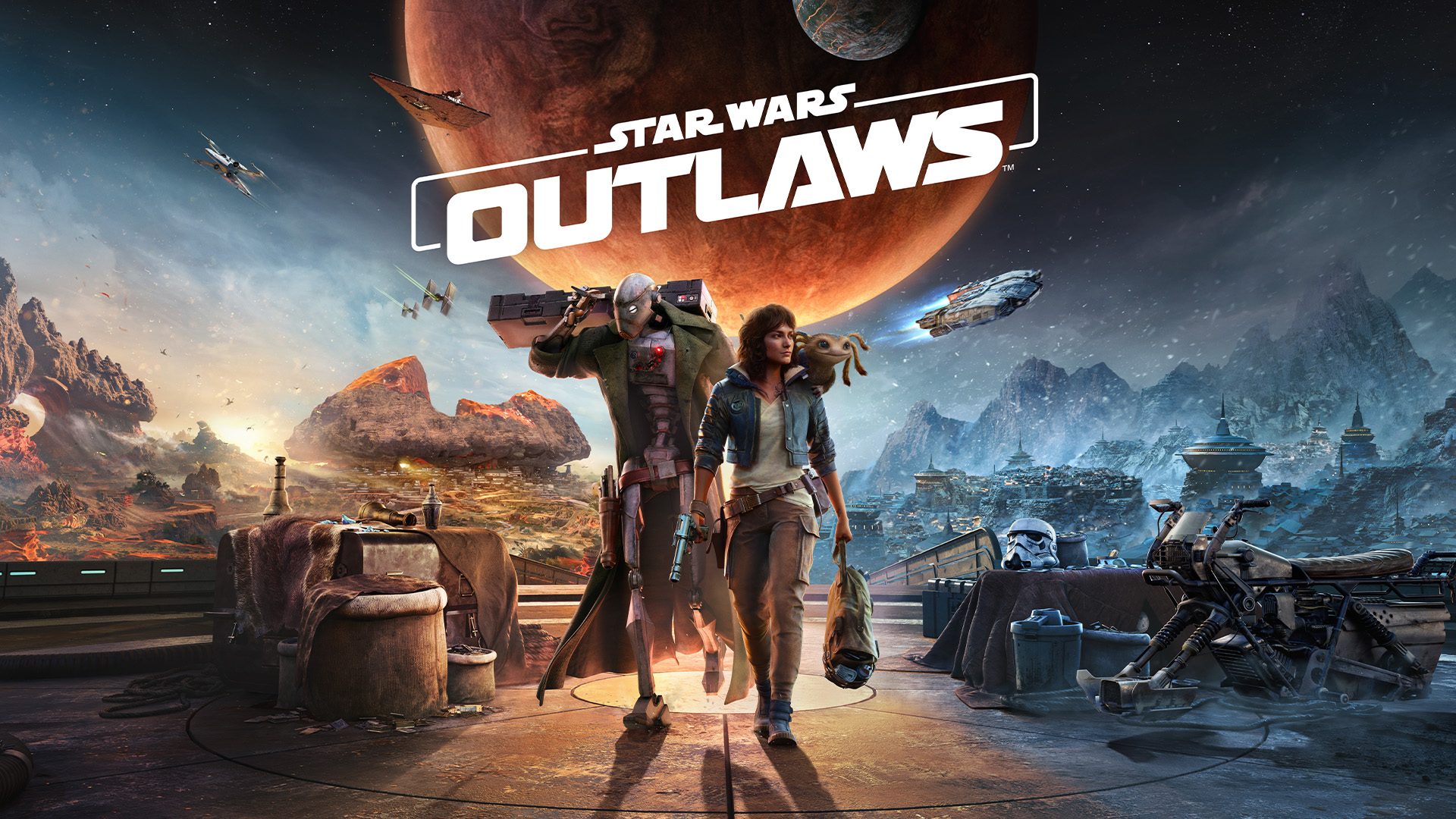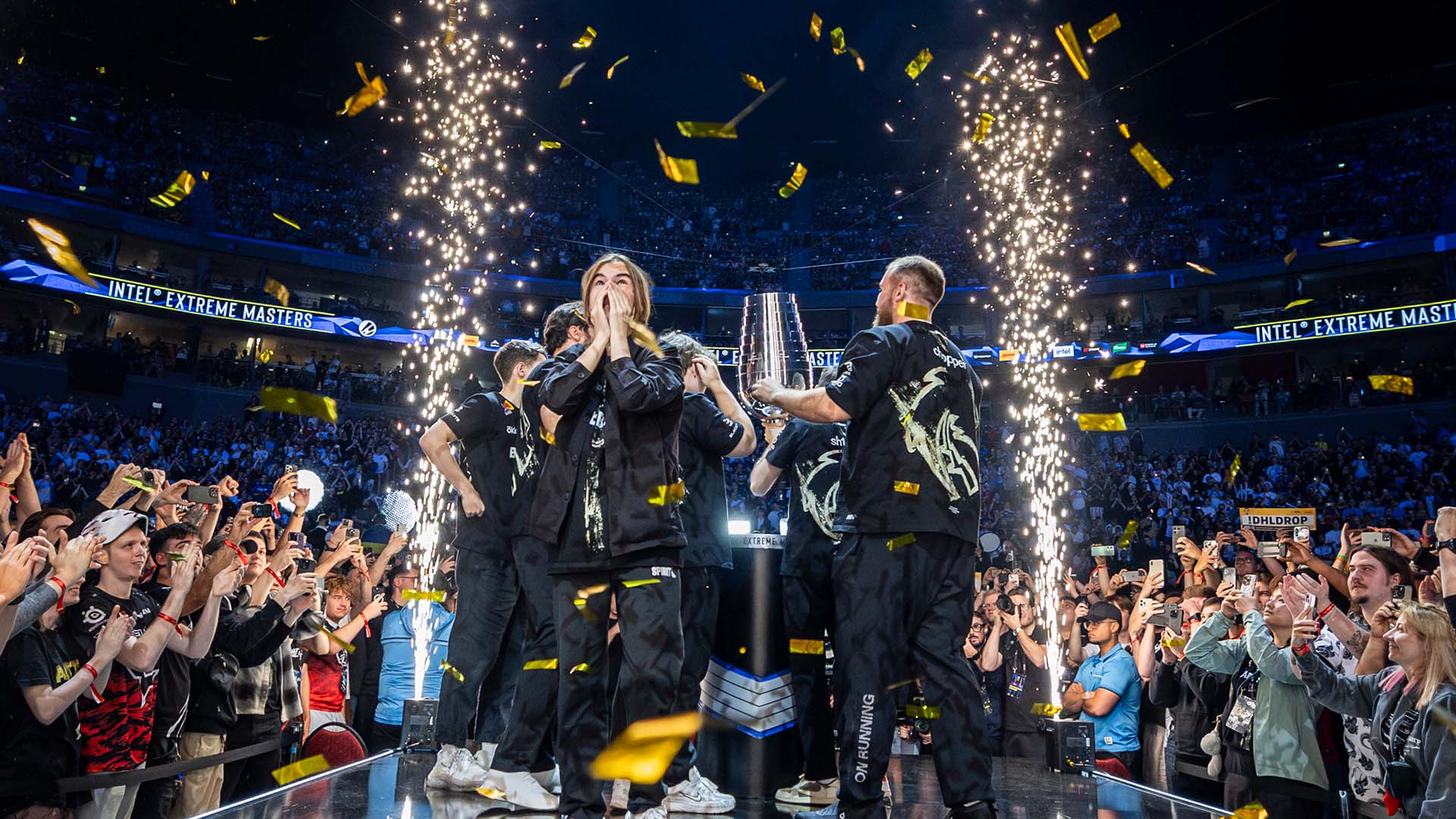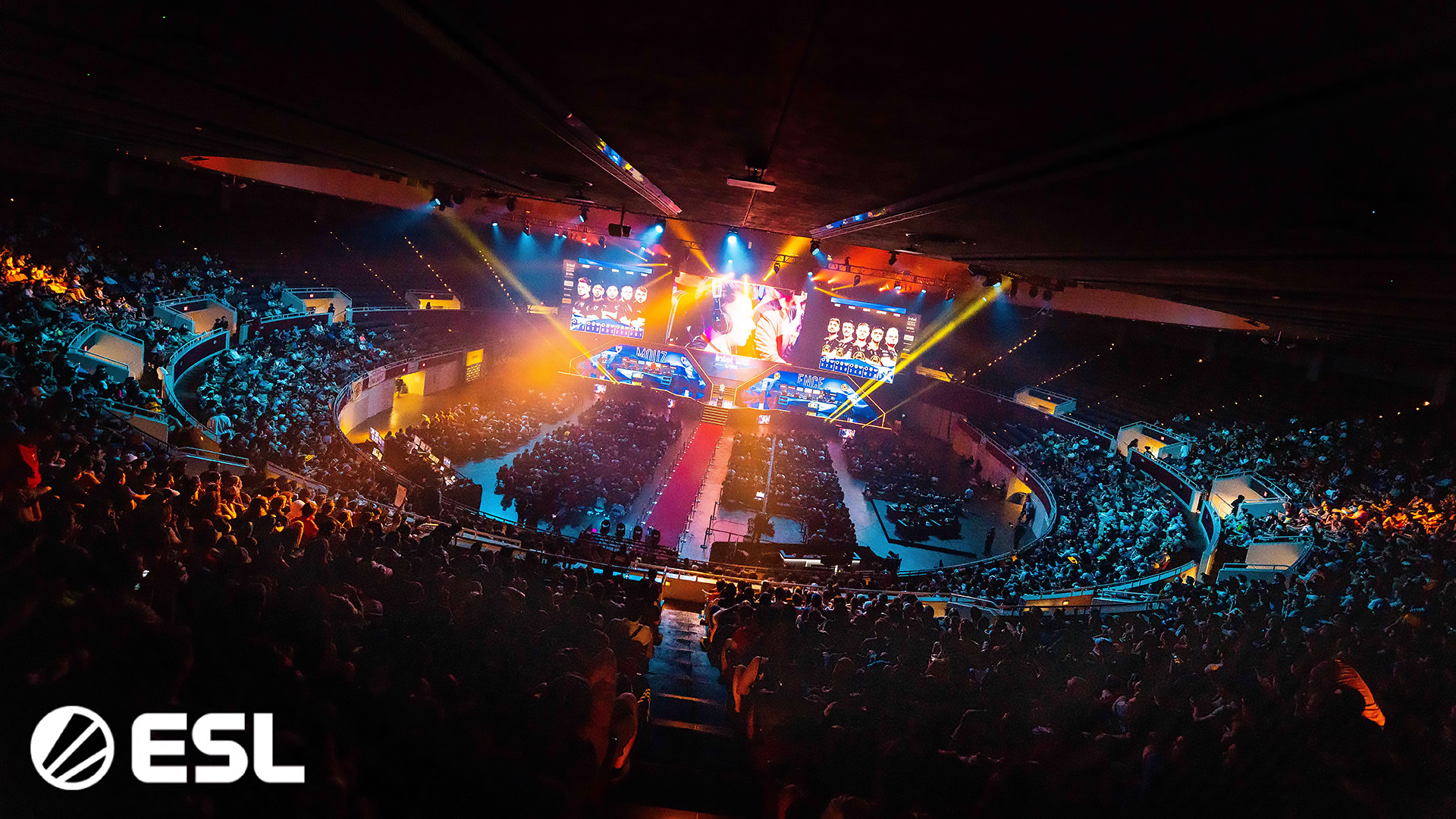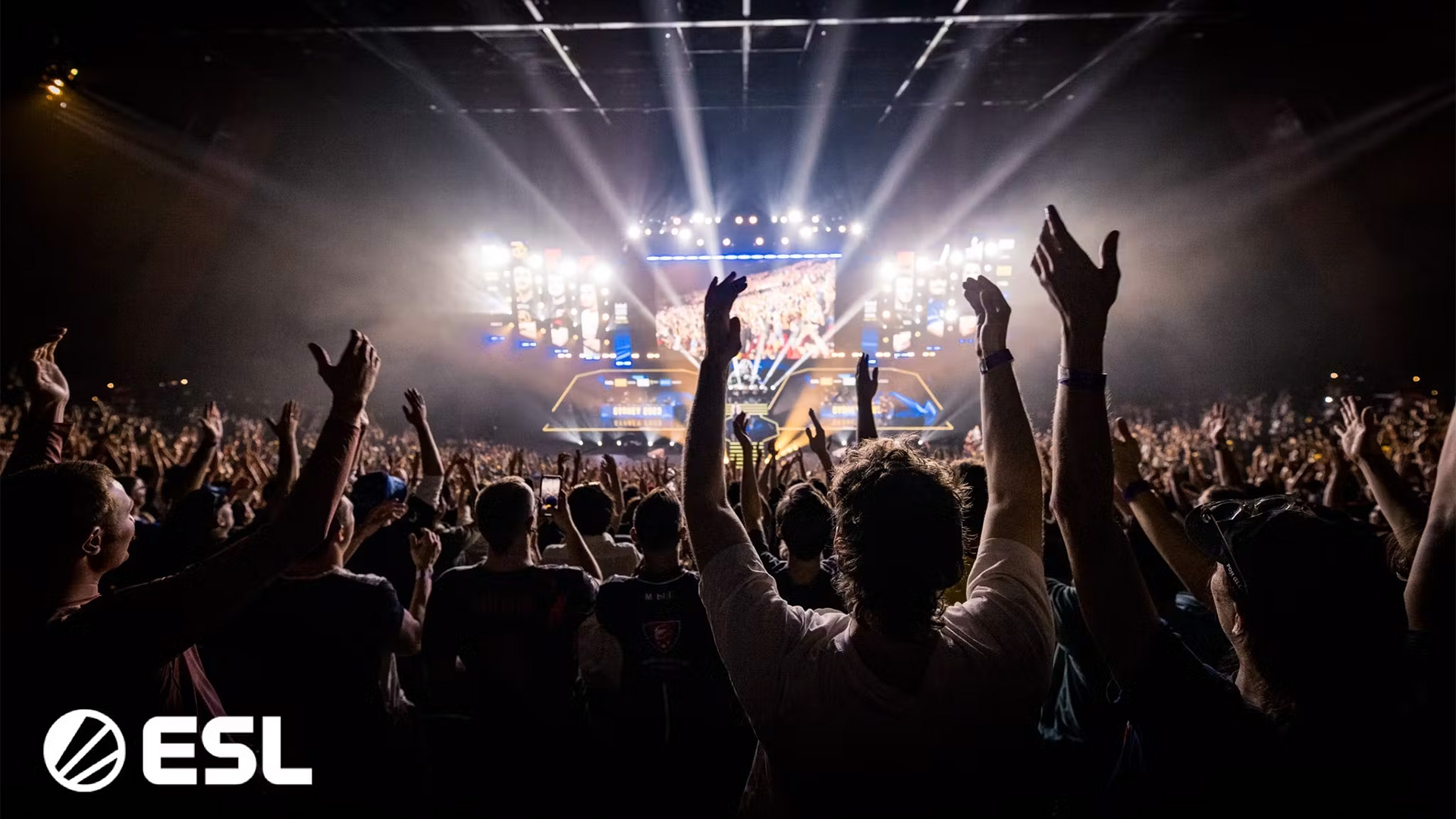Gaming is for everyone at UC Davis and UC Berkeley in California
Esports has become a force to be reckoned with in recent years. It boomed during COVID, and while the commercial esports star has faded slightly since then, the appetite for connection, friendship, and a few well-earned competitive wins at the college level has never been greater.
Across the US, schools are increasingly integrating esports into campus life, offering everything from volunteer-led clubs to full blown programs and dedicated facilities. Intel Gaming Access met up with some of the people behind thriving esports programs at two California universities—UC Davis and UC Berkeley—to find out why collegiate esports is so hot right now.
Esports at UC Davis
Founded in 2021 in Northern California, Esports at UC Davis currently runs a total of 13 teams across 8 games, including Valorant, League of Legends, Overwatch, and Splatoon among others. Splatoon is probably not the first game that springs to mind on hearing the word ‘esports’, but it’s symbolic of the accessibility and inclusiveness that the Esports at UC Davis organization is aiming for. It didn’t immediately occur as an esports possibility to competitive player Nathan Sangria either, but he and his friends were welcomed with open arms when they started their Splatoon team.
“I’ve always had fun with games and it’s fun to win, but for me, the people I’ve met through Splatoon are probably my best friends,” Nathan says. “We have so much fun together regardless of winning and losing, it’s always a blast.” Nathan’s experience encapsulates the essential appeal of college esports. Sure, winning is cool and everything, but making friends for life through shared passions and experiences is way cooler.
Wholesome objectives aside, esports at UC Davis is still a serious business. Jonathan Wang, Director of Esports at UC Davis says, “We’re registered as a Sports Club with the university, and that means we’re subject to certain requirements such as player physicals. I have to ensure all of our players are fulfilling these administrative requirements in order to attend events.”
UC Davis Valorant Gold team at Red Bull Campus Clutch event
For those who don’t choose to compete, there’s plenty of other ways to join the crew. Stephanie Trinh is Director of Public Relations for the program, and one of a team of around 30 to 40 non-competing officers across the organization, who are collectively responsible for everything from graphic design to production. “I knew I wanted to join some kind of gaming club when I came upon esports at UC Davis,” she says. “I love gaming, but I’m really bad, so I saw that officer positions were open and I got involved.”
“I grew up feeling a little ashamed of gaming, but any time I talk to anyone in the program, everyone’s just so supportive,” continues Stephanie. “It’s so easy to talk to anyone about gaming and no one gets bored, no one tells you to stop or that it’s a waste of time. It’s a really nice, supportive community.”
At UC Davis, esports gives students opportunities to compete and interact with other schools, but they also cast the net wider. “In the past we have hosted career panels, and we’ve had speakers come who’ve been involved in a variety of different industries, like esports and game development,” says Jonathan, emphasizing that games are an economic and cultural force to be reckoned with and can offer a fulfilling career path.
Cal Esports at UC Berkeley
Southwest of UC Davis sits the Bay Area’s UC Berkeley, home to another thriving collegiate esports program.
Kirk Robles is Associate Director of Business Development in the Division of Student Affairs at the school, and the person with ultimate oversight of the Cal Esports program. Kirk was part of the team that helped make the program official under the Department of Recreation & Wellbeing in 2017.
“We were approached by what was then a Cal Esports student group. They had been winning some Overwatch championships and wanted to know how they could get more support,” says Kirk. “Our director of the recreational facility saw this as an awesome opportunity.”
“This is a subset of students who may never actually go to our gym or know any of our other programs, but this is a form of a competition and wellness that they’re interested in and an audience we wanted to reach,” continues Kirk. “We formalized the program and modeled some of its behavior on sport clubs, but very quickly we found that esports and sport clubs — although they have competition in mind — are vastly different in terms of how they’re run and how they compete.” A year later in 2018, they opened a dedicated esports center, which today has around 54 computers available to members of the program and also the wider gaming community on campus. “They use the Center for different events, like Smash Bros events, or tournaments for League of Legends, Valorant, and Overwatch,” explains Kirk.
Cal Esports LAN event at UC Berkeley
The Cal Esports program is fully funded by corporate sponsorships with Asus, NVIDIA and others, which brings it cash and credibility, but also ties it to contractual obligations for its sponsors. It’s a trade off worth making as it allows the team to be paid with more than game keys and goodwill. “A lot of student clubs around the country are run by volunteers, but I think it’s important to note that we pay students to run these programs,” says Kirk. “It was non negotiable when we were presenting to our leadership that if we’re going to have students create programming they’re paid to do that, and we’re not just taking advantage of their excitement.”
One of those paid staffers is program manager Campbell Moco. “I handle the center staffing, and manage a lot of our competitive teams,” he says. “I make sure no one’s breaking rules, that we’re all participating in leagues, and our teams have the support so they can compete at their best.” Among the biggest games currently represented by teams are Valorant, League of Legends, Rocket League, and Overwatch. “We’re also one of the few colleges in the country that supports VR esports, which is an emerging area,” adds Campbell. “There’s not a lot of support for it yet, but it’s very cool.”
Games are for everyone
Inclusivity and accessibility of gaming for all is a vital component of esports at UC Berkeley, and it led to the creation of the Cal Marginalized Genders in Gaming (CMGG) group in 2018. Vivienne Lin, CMGG Senior Advisor, explains how she got involved. “When I was a senior in high school, a friend was going to Berkeley. They knew that I loved gaming and they asked if I had heard about this club at UC Berkeley called Cal Marginalized Genders in Gaming or CMGG, a space specifically for women and marginalized genders.”
She continues, “Gender discrimination is definitely a barrier in terms of collegiate gaming and the esports space, and CMGG is one of the few places where I can enjoy my passion without thinking people weren’t taking me seriously because of my gender.”
Ivy Liu is the current co-president of CMGG, responsible for ensuring no one of a marginalized gender feels excluded from gaming on campus. “Esports has been a very male-dominated space and our goal in CMGG is to give our players a chance to try esports, even if they feel they aren’t able to compete on that same level,” she says. “It’s a new program and we’re constantly trying to improve. We really want to make sure that we’re doing the best that we can to make sure that esports is accessible to everyone.”
Cal Marginalized Genders in Gaming group at UC Berkeley
In addition to its work within the campus community, CMGG also forges links to the wider world of gaming to provide professional development opportunities for its members. “A really cool thing is that we have a game industry mentorship program, which pairs university students of a marginalized gender identity background with professionals working in the games industry,” Ivy says. “I’ve been paired with some really cool people from Riot, and my current mentor is from Bungie. You meet some really amazing people and it’s a good chance to learn about the industry.”
Beyond the mentorship program, CMGG also hosts its own game jams. “Participating in those game jams, and helping to host them when I was president last year, really helped me realize what I’m good at, and that game development isn’t just about programming or art,” says Vivienne. “I’m interested in game production, and that’s the path into game dev that I’m currently pursuing.”
Its leaders see CMGG as a trailblazing organization in collegiate esports. “It’s great to talk to other students who want to create something similar to CMGG,” adds Vivienne. “We’re continuing to grow, and I think in the near future we’re going to see so many more clubs like ours. That’s really exciting.”
Fortune Favors Collegiate Esports
Restrictions during COVID helped boost the fortunes of esports, and not only by driving more people to play and watch games online. “The pandemic had a lot of negative effects, but one of the shining lights was that it gave more acceptance for esports across campus — leadership understood what their children were doing,” says Kirk. “So when we came back to campus there was a renewed interest and understanding around esports, and people asking what we were doing with it.”
League of Legends Worlds Championship Watch Party hosted by Esports at UC Davis
While esports are becoming more accepted, the gaming industry as a whole continues to face challenges. “There have been mass layoffs, and in esports I think that is being felt particularly hard,” says Vivienne. “Five or six years ago, there was a lot of interest and investment in esports, but I think now the bubble has burst and investors are realizing that it’s not as profitable as they thought.”
“A lot of esports organizations who field competitive teams at the highest level are having to scale back their operations and let go of people,” continues Vivienne. “Some have had to leave the tournaments that they participate in because they just cannot afford them anymore.” Still, there has never been a better time to embrace esports at the collegiate level, as the ranks of players, competitive and casual, continue to swell.
“The numbers are definitely growing,” confirms Jonathan. “As President, a lot of students message me and ask how they can get involved, so the interest for gaming and competing in esports is definitely there. Maintaining that and getting the support that’s needed, that’s where most of the challenge comes from.”
Esports at UC Davis picnic social event
“It’s really interesting to see the growing interest and understanding around Cal Esports, not just for competitive players, but for casual players, with communities like CMGG, and the student clubs,” says Kirk.
“That’s why the Department of Recreation & Wellbeing helped create the program. Berkeley is a very academically charged environment and they see this as a form of wellness for our students.”
“A lot of different programs at campuses are becoming much more established, and I’m hopeful for the future of esports at UC Davis,” says Jonathan. “I know we’ll continue to keep working and trying to grow our organization, and so the future is bright.”
And if anyone needs reminding, Campbell from Cal Esports has these words: “It’s about the fun. It’s not about winning.”
Find out more about Esports at UC Davis, Cal Esports at UC Berkeley, and Cal Marginalized Genders in Gaming (CMGG).
Learn more about how Intel has supported esports since 2006.


